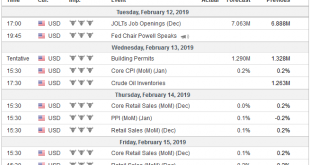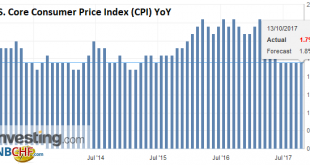In the FT, Chris Giles, Caroline Binham, and Delphine Strauss report about plans of the Bank of England to let fintech companies bank at Threadneedle Street and thereby offer payments systems on a level playing field with commercial banks. The editorial board of the FT welcomes the plans; it seems to have in mind not only competition but also “synthetic” CBDC: By offering fintech companies access to the BoE’s vaults, the governor may inject much-needed competition into the sector. What...
Read More »FX Weekly Preview: Little Resolution in the Week Ahead
According to legend, the person who unraveled the Gordian Knot would rule the world. No one succeeded until Alexandar the Great took his mighty sword and sliced the knot in half. A young boy saw him afterward, crying on the steps of the Temple of Apollo. “Why are you crying?” the boy asked, “you just conquered the world. “Yes'” Alexander wept, ” now there is nothing else for me to do.” Investors are not as cursed as...
Read More »Truata
In the FT, Mehreen Khan and Aliya Ram report that MasterCard and IBM plan to create a “data trust” to allow businesses with EU customers to meet the strict General Data Protection Regulation (GDPR) provisions that come into effect by the end of May. “Truata” will be based in Dublin. The independent company, called Truata, will manage, anonymise and analyse vast amounts of personal information held by companies such as travel agents and insurers in a way that is compliant under the EU’s...
Read More »Dollar Dropped like Hot Potato After Core CPI Disappointed
The dollar was bid before the US economic data. The market responded quickly upon seeing the disappointing 0.1% rise in core CPI. Given the base effect, the 0.1% increase kept the year-over-year rate at 1.7% for the fourth consecutive month. The dollar reversed lower. Retail sales were largely in line with expectations. The 1.6% headline increased missed expectations by 0.1%, which is exactly what the August series was...
Read More »The Cost of Identity Theft
The Economist reports that according to estimates, undoing identity fraud can take an average of six months and 100 to 200 hours of a person’s time. In addition there is the risk of substantial financial losses due to identity fraud. Suppose a data breach exposes personal information of 1 million people. As a consequence, 0.1% of the affected persons suffer financial costs of $100 each, and all affected persons spend 100 hours to undo the damage. Suppose the average wage of the affected...
Read More »Research Funding in Economics
In the Journal of Economic Perspectives, Tyler Cowen and Alex Tabarrok question whether NSF funds are allocated efficiently. They write: First, a key question is not whether NSF funding is justified relative to laissez-faire, but rather, what is the marginal value of NSF funding given already existing government and nongovernment support for economic research? Second, we consider whether NSF funding might more productively be shifted in various directions that remain within the legal and...
Read More » Swiss Economicblogs.org
Swiss Economicblogs.org


